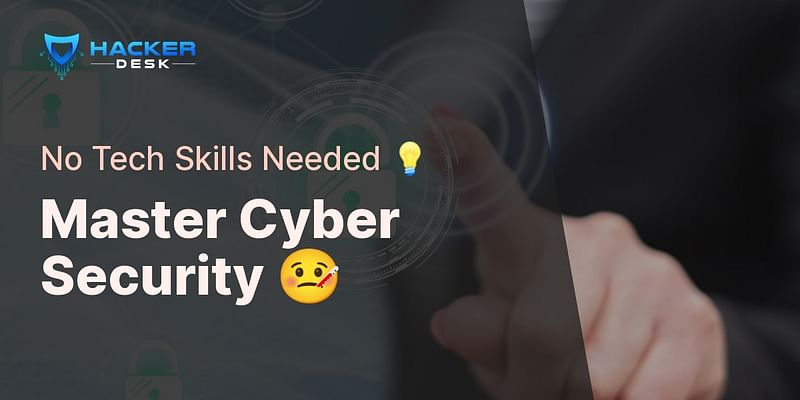Caleigh Gutkowski is a distinguished cybersecurity expert with over ten years of experience in the technology sector. Her expertise lies in detecting and preventing network intrusions. Caleigh is renowned for her talent in demystifying intricate security notions for the ordinary user.
Can you become a cybersecurity expert without deep technical knowledge?
Absolutely! While having a strong technical background can be advantageous in the field of cybersecurity, it is not the only path to becoming an expert. Cybersecurity is a multidisciplinary field that requires a diverse skill set, including technical, analytical, and problem-solving abilities. In fact, many successful cybersecurity professionals come from non-technical backgrounds and have developed their expertise through continuous learning and practical experience.
Here are some steps you can take to become a cybersecurity expert without deep technical knowledge:
1. Start with the basics: Begin by familiarizing yourself with the fundamental concepts of cybersecurity. This includes understanding common threats, attack vectors, and security best practices. Online resources, such as cybersecurity blogs, forums, and tutorials, can provide a wealth of information to get you started.
2. Take advantage of online learning: There are numerous online courses and certifications available that cater to individuals with varying levels of technical knowledge. These courses cover a wide range of cybersecurity topics, from network security basics to penetration testing for beginners. Platforms like Coursera, Udemy, and Cybrary offer comprehensive cybersecurity courses that can help you develop the necessary skills and knowledge.
3. Join cybersecurity communities: Engaging with cybersecurity communities can provide valuable insights and networking opportunities. Participate in online forums, discussion boards, and social media groups dedicated to cybersecurity. These communities often have experts who are willing to share their knowledge and mentor aspiring professionals.
4. Get hands-on experience: Practical experience is crucial in cybersecurity. Consider setting up a home lab to experiment with different security tools and techniques. You can also participate in Capture the Flag (CTF) competitions, which simulate real-world cybersecurity scenarios and allow you to test your skills in a controlled environment.
5. Stay updated with the latest trends: Cybersecurity is a rapidly evolving field, and staying up-to-date with the latest trends and technologies is essential. Follow reputable cybersecurity blogs, subscribe to industry newsletters, and attend webinars or conferences to stay informed about emerging threats and advancements in the field.
6. Develop soft skills: While technical knowledge is important, developing soft skills can set you apart as a cybersecurity expert. Strong communication, problem-solving, and critical thinking skills are highly valued in the industry. Additionally, having a solid understanding of business and risk management can help you align cybersecurity strategies with organizational goals.
Remember, becoming a cybersecurity expert is a journey that requires continuous learning and adaptation. With dedication, perseverance, and a proactive approach to learning, you can certainly excel in the field of cybersecurity, even without deep technical knowledge or a formal degree. So, don't let your current background hold you back from pursuing a rewarding career in cybersecurity!















